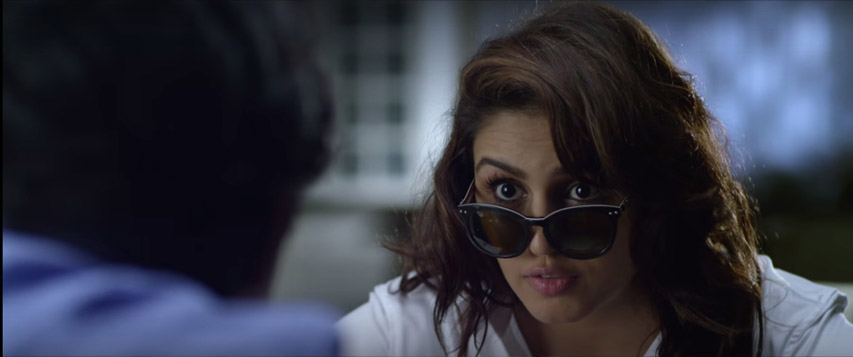
True Review Movie - Hindi - X Past Is Present
by The Daily Eye Team November 23 2015, 11:05 am Estimated Reading Time: 2 mins, 48 secsCast : Rajat Kapoor, Anshuman Jha, Radhika Apte, Huma Qureshi, Swara Bhaskar, Anshuman Jha, Aditi Chengappa, Bidita Bag, Rii, Gabriella Schmidt, Usha Uthup.
Direction: Abhinav Shiv Tiwari, Anu Menon, Hemant Gaba, Nalan Kumarasamy, Pratim D. Gupta, Q, Raja Sen, Rajshree Ojha, Sandeep Mohan, Sudhish Kamath, Suparn Verma.
Produced: Manish Mundra, Sudhish Kamath, Shiladitya Bora.
Genre: Thriller.
Duration: 105 Mins
Watching X: Past is Present is like being in a trance or a dream. Some moments remain vivid even after the film gets over, others way too hazy to recollect. There is a big idea here, which gets communicated to the viewer at times and eludes at others. The film moves from moments of instant connect to those which demand that the viewer see things from a distance.
Much of it has to do with the individual approach of each of the 11 filmmakers and also the response of the viewer emanating from his or her own idea of love. If you are into the conventions of a classic romance, like me, then the tale of two strangers sharing a room and an affinity, empathy and love for poetry, without quite knowing or meeting each other may make more sense.
Yes, there are nods to Gulzar (tanga hua chaand, i.e. the hanging moon) and Wong Kar Wai (the choreographed walk) here but also a certain fluidity and surefootedness in handling the material. If you are into abstractions, then the episode dealing with the feverish mind of the writer, the maid in the house and a raging lover outside will make more sense to you.
X is a collaboration of many individuals and individual sensibilities. Though tremendous effort has gone into knitting them all together into a whole (notice how the women are always in focus, the man stays in the background, never in the frame; how women are gazed at; the close ups and odd angles and the deliberate random, jerky shifts) the inconsistency of tone has a way of creeping up. Keep the indulgence in the style aside and the film is basically quite simple at heart: about a filmmaker and his varied encounters with women, about the relationship matrix that men never seem to get right.
My problem is that at times things get too spelt out. The delight of love and of storytelling is in that which remains unstated. So why spell out the poignancy of unrequited love when it has already been underlined in the “shared room” story? The Swara Bhaskar story, the coquettishness and flirtations in it, its assertion that sex, like love, knows no language barrier, were all going so well till something of an afterthought happened.

The central narrative knitting the short tales falls prey to the same — says too much, indulges too much in the banal and has an easy actor like Rajat Kapoor paired off with a lady who he doesn’t seem to have much of an on-screen communication with.
Having said that it’s the women on whom the camera remains acutely focused — specially Swara Bhaskar, Radhika Apte, Huma Qureshi, Parno Mitra and Pooja Ruparel — who make the film much richer than it is. The mobile faces, fleeting expressions, the effortlessness and screen presence are all a winner. The film might be about a man but it belongs to its women.






-173X130.jpg)
-173X130.jpg)

-173X130.jpg)


-173X130.jpg)
